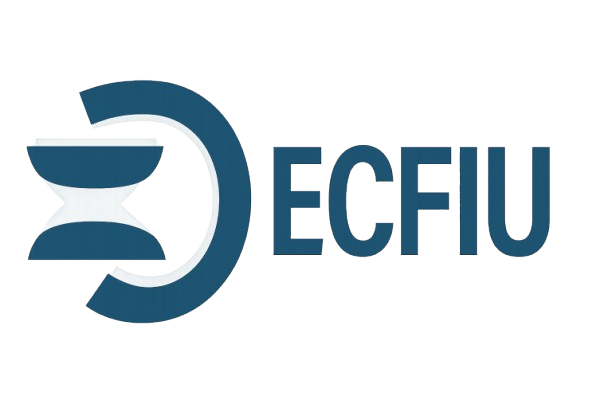Fake Medicine
The Silent Pandemic: The Global Scourge of Fake Medicine
The Illusion of Wellness: The Dangerous World of Uncertified "Medicines"
In the bustling marketplace of modern health and wellness, a new category of products has proliferated: uncertified medicines. These are not the blatant counterfeits of known pharmaceuticals but are products marketed with implied therapeutic benefits, yet they operate in a regulatory grey area. They are pills, potions, powders, and tinctures that claim to heal, rejuvenate, or cure but are sold without the rigorous scientific validation required of approved drugs. This represents a different, yet equally dangerous, facet of the fake medicine scam—one that often uses the language of "natural," "alternative," and "wellness" to bypass scrutiny and exploit consumer desire for simple solutions to complex health problems.
What Exactly Are Uncertified Medicines?
An uncertified medicine is any product that is marketed with explicit or implied health claims—such as "boosts immunity," "treats joint pain," or "fights cancer cells"—but has not been evaluated or approved by a national regulatory authority (like the FDA in the U.S., EMA in Europe, or Health Canada) for safety, quality, or efficacy.
They are often labeled as:
The critical distinction is the claim. A bottle of turmeric powder is a spice. A bottle of "Turmeric Curcumin Complex" that claims to "reduce inflammation and arthritis pain" without approval is an uncertified medicine making an illegal drug claim.
The Deceptive Marketing Playbook
The strategy for selling these products relies on creating an aura of scientific legitimacy while avoiding the actual scientific process.
The Real and Present Dangers
The risk of these products goes far beyond just wasting money.
Direct Health Harm:
Economic Exploitation: These products are often sold at a premium price, capitalizing on desperation. Families can spend thousands of dollars on false hope, draining resources needed for real medical care, nutritious food, and support.
Erosion of Scientific Trust: The promotion of unproven remedies undermines public understanding of science and evidence-based medicine. It creates a culture where personal belief is valued over collective scientific evidence, making populations vulnerable to all forms of medical misinformation.
How to Protect Yourself: A Consumer's Guide
Navigating this landscape requires critical thinking and vigilance.
Understand the Label:
Interrogate the Claims:
Consult a Healthcare Professional:
Conclusion: Choosing Evidence Over Illusion
The market for uncertified medicines preys on hope, fear, and the very human desire for control over one's health. While the wellness industry can offer valuable tools for a healthy lifestyle, it is critically important to distinguish between evidence-based practices and products that are merely peddling illusion.
True healthcare is built on a foundation of rigorous testing, transparency, and proven results. As consumers, our most powerful tool is skepticism. By demanding proof, questioning bold claims, and relying on the guidance of licensed medical professionals, we can protect our health from the very products falsely promised to improve it. Your health is too valuable to be entrusted to anything less than certified, proven science.
If you are a victim of uncertified medicines usage, you should immediately report the incident to your healthcare system and local law enforcement authorities for assistance and to file a formal report and get appropriate assistance.
In the bustling marketplace of modern health and wellness, a new category of products has proliferated: uncertified medicines. These are not the blatant counterfeits of known pharmaceuticals but are products marketed with implied therapeutic benefits, yet they operate in a regulatory grey area. They are pills, potions, powders, and tinctures that claim to heal, rejuvenate, or cure but are sold without the rigorous scientific validation required of approved drugs. This represents a different, yet equally dangerous, facet of the fake medicine scam—one that often uses the language of "natural," "alternative," and "wellness" to bypass scrutiny and exploit consumer desire for simple solutions to complex health problems.
What Exactly Are Uncertified Medicines?
An uncertified medicine is any product that is marketed with explicit or implied health claims—such as "boosts immunity," "treats joint pain," or "fights cancer cells"—but has not been evaluated or approved by a national regulatory authority (like the FDA in the U.S., EMA in Europe, or Health Canada) for safety, quality, or efficacy.
They are often labeled as:
- Dietary Supplements
- Herbal Remedies
- Traditional Medicines (if not properly regulated)
- "Nutraceuticals"
- Wellness Boosters or Superfoods in concentrated form
The critical distinction is the claim. A bottle of turmeric powder is a spice. A bottle of "Turmeric Curcumin Complex" that claims to "reduce inflammation and arthritis pain" without approval is an uncertified medicine making an illegal drug claim.
The Deceptive Marketing Playbook
The strategy for selling these products relies on creating an aura of scientific legitimacy while avoiding the actual scientific process.
- Anecdotes Over Evidence: Marketing is flooded with powerful, emotional personal testimonials: "This miracle tea changed my life!" These stories are compelling but are not scientific proof. They are a classic propaganda technique, substituting data with emotion.
- Pseudo-Scientific Jargon: Products are described with terms like "clinically studied," "doctor-formulated," or "laboratory tested." These phrases are carefully chosen to sound scientific without meaning anything. "Clinically studied" does not mean "clinically proven"; a single, flawed study can be the basis for this claim.
- The "Natural" Fallacy: The label "all-natural" is used as a synonym for "safe." This is a dangerous misconception. Poison ivy, arsenic, and mercury are all natural. Many potent pharmaceuticals are derived from plants; the difference is in the controlled dosage, purity, and proven effect.
- Exploiting Regulatory Loopholes: In many countries, supplements are regulated as a category of food, not drugs. This means they do not need to be proven safe and effective before they are marketed. Regulatory bodies like the FDA can only act after a product is on the market and found to be adulterated or making illegal claims—a reactive, not proactive, system that is easily overwhelmed.
The Real and Present Dangers
The risk of these products goes far beyond just wasting money.
Direct Health Harm:
- Toxic Ingredients: Uncertified products have been found to contain hidden pharmaceutical ingredients (like steroids or prescription weight-loss drugs), heavy metals (lead, mercury, arsenic), pesticides, and dangerous bacteria.
- No Active Ingredient: The product may contain none of the advertised herb or compound, rendering it useless for the intended purpose and delaying real treatment.
- Dangerous Interactions: A patient taking an uncertified "herbal heart tonic" alongside a prescribed blood thinner could experience a fatal interaction. Without proper labeling and medical oversight, the risk is immense.
Economic Exploitation: These products are often sold at a premium price, capitalizing on desperation. Families can spend thousands of dollars on false hope, draining resources needed for real medical care, nutritious food, and support.
Erosion of Scientific Trust: The promotion of unproven remedies undermines public understanding of science and evidence-based medicine. It creates a culture where personal belief is valued over collective scientific evidence, making populations vulnerable to all forms of medical misinformation.
How to Protect Yourself: A Consumer's Guide
Navigating this landscape requires critical thinking and vigilance.
Understand the Label:
- Look for an ** approval number** from your national health authority on the packaging of any product making a health claim.
- In the U.S., look for the USP Verification Mark (United States Pharmacopeia), which indicates the product has been tested for ingredients and purity (though not for efficacy as a drug).
- Beware of "Cure-Alls": If a product claims to treat a wide range of unrelated diseases, it is a major red flag.
Interrogate the Claims:
- "Is this claim too good to be true?" (e.g., "Lose 20 pounds in a week without dieting!")
- "What is the evidence?" Look for references to specific, published clinical trials in reputable journals, not just testimonials.
- "Who is selling this?" Be extremely wary of products sold through multi-level marketing (MLM) schemes or social media influencers with no medical credentials.
Consult a Healthcare Professional:
- Always talk to your doctor, pharmacist, or a registered dietitian before starting any new supplement or wellness product. They can help you verify its claims, check for potential interactions with your current medications, and guide you toward evidence-based choices.
Conclusion: Choosing Evidence Over Illusion
The market for uncertified medicines preys on hope, fear, and the very human desire for control over one's health. While the wellness industry can offer valuable tools for a healthy lifestyle, it is critically important to distinguish between evidence-based practices and products that are merely peddling illusion.
True healthcare is built on a foundation of rigorous testing, transparency, and proven results. As consumers, our most powerful tool is skepticism. By demanding proof, questioning bold claims, and relying on the guidance of licensed medical professionals, we can protect our health from the very products falsely promised to improve it. Your health is too valuable to be entrusted to anything less than certified, proven science.
If you are a victim of uncertified medicines usage, you should immediately report the incident to your healthcare system and local law enforcement authorities for assistance and to file a formal report and get appropriate assistance.
Article prepared by:
-
 Mia GabrielsenHead of Clinical Pharmacology and Toxicology, Institute of Forensic Medicine
Mia GabrielsenHead of Clinical Pharmacology and Toxicology, Institute of Forensic Medicine
Back to main website:
DISCLAIMER
The European Crypto Fraud Intelligence Unit (ECFIU) focuses exclusively on cyber-enabled fraud, primarily within the realms of cryptocurrency and investment schemes. For reports concerning crimes such as human trafficking, human rights violations, terrorist financing, or other serious offenses with a primary physical component, please contact the relevant national law enforcement or government authorities directly.
